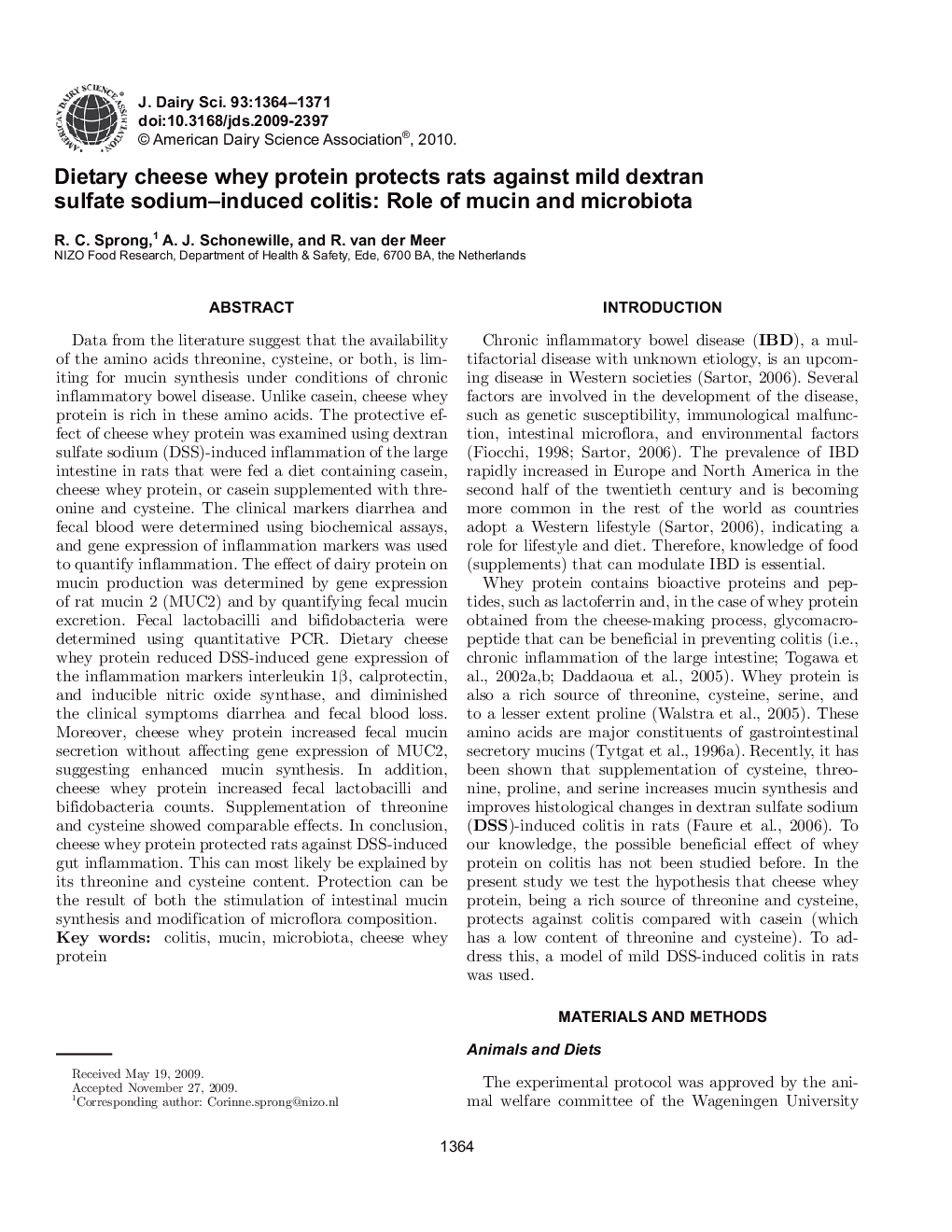| کد مقاله | کد نشریه | سال انتشار | مقاله انگلیسی | نسخه تمام متن |
|---|---|---|---|---|
| 10982373 | 1108097 | 2010 | 8 صفحه PDF | دانلود رایگان |
عنوان انگلیسی مقاله ISI
Dietary cheese whey protein protects rats against mild dextran sulfate sodium-induced colitis: Role of mucin and microbiota
دانلود مقاله + سفارش ترجمه
دانلود مقاله ISI انگلیسی
رایگان برای ایرانیان
موضوعات مرتبط
علوم زیستی و بیوفناوری
علوم کشاورزی و بیولوژیک
علوم دامی و جانورشناسی
پیش نمایش صفحه اول مقاله

چکیده انگلیسی
Data from the literature suggest that the availability of the amino acids threonine, cysteine, or both, is limiting for mucin synthesis under conditions of chronic inflammatory bowel disease. Unlike casein, cheese whey protein is rich in these amino acids. The protective effect of cheese whey protein was examined using dextran sulfate sodium (DSS)-induced inflammation of the large intestine in rats that were fed a diet containing casein, cheese whey protein, or casein supplemented with threonine and cysteine. The clinical markers diarrhea and fecal blood were determined using biochemical assays, and gene expression of inflammation markers was used to quantify inflammation. The effect of dairy protein on mucin production was determined by gene expression of rat mucin 2 (MUC2) and by quantifying fecal mucin excretion. Fecal lactobacilli and bifidobacteria were determined using quantitative PCR. Dietary cheese whey protein reduced DSS-induced gene expression of the inflammation markers interleukin 1β, calprotectin, and inducible nitric oxide synthase, and diminished the clinical symptoms diarrhea and fecal blood loss. Moreover, cheese whey protein increased fecal mucin secretion without affecting gene expression of MUC2, suggesting enhanced mucin synthesis. In addition, cheese whey protein increased fecal lactobacilli and bifidobacteria counts. Supplementation of threonine and cysteine showed comparable effects. In conclusion, cheese whey protein protected rats against DSS-induced gut inflammation. This can most likely be explained by its threonine and cysteine content. Protection can be the result of both the stimulation of intestinal mucin synthesis and modification of microflora composition.
ناشر
Database: Elsevier - ScienceDirect (ساینس دایرکت)
Journal: Journal of Dairy Science - Volume 93, Issue 4, April 2010, Pages 1364-1371
Journal: Journal of Dairy Science - Volume 93, Issue 4, April 2010, Pages 1364-1371
نویسندگان
R.C. Sprong, A.J. Schonewille, R. van der Meer,